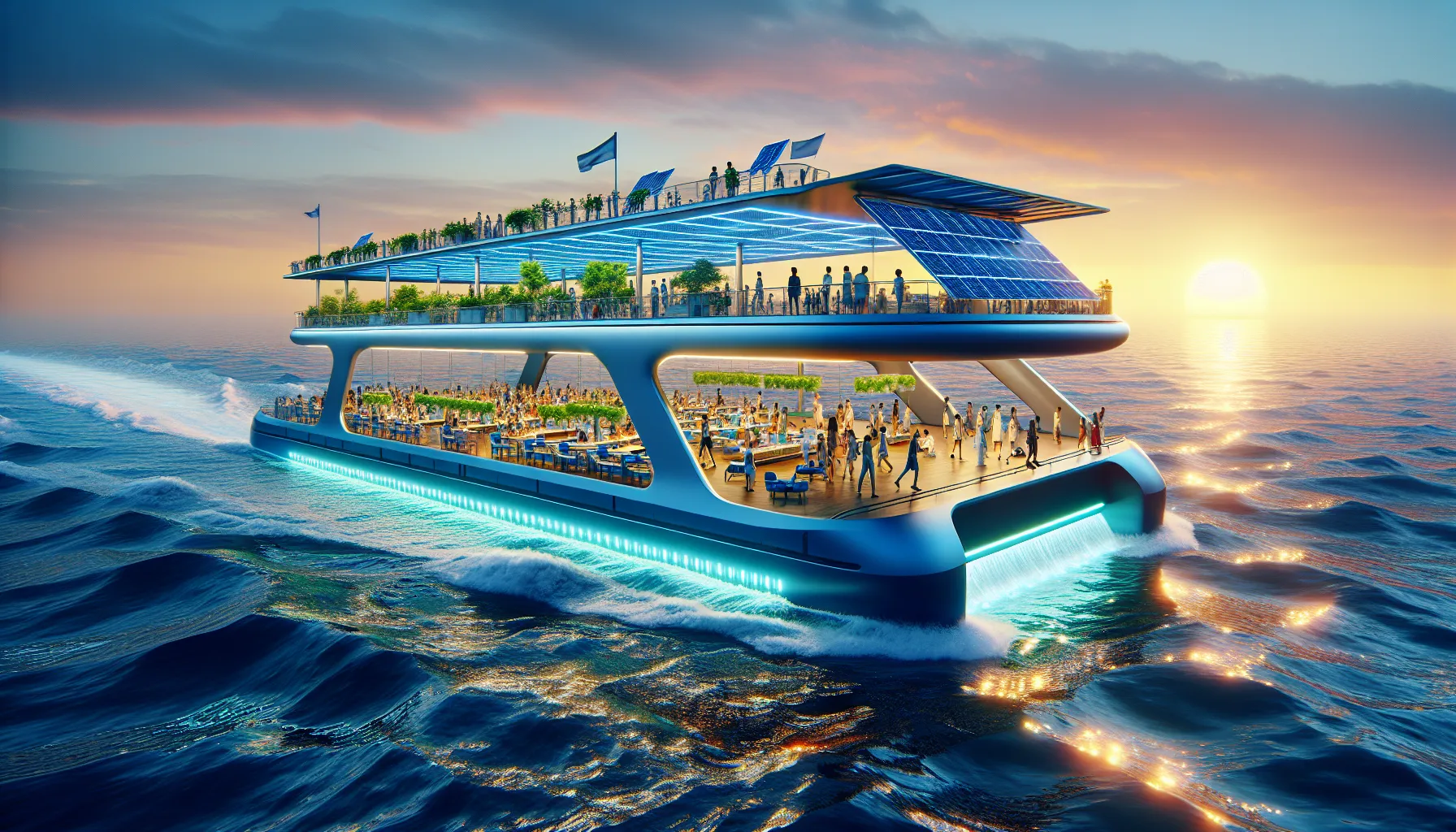Preparing for the IELTS Reading section can be challenging, especially when tackling complex topics like electric ferries and sustainable water transportation. In this comprehensive guide, we provide you with a sample IELTS Reading test, including passages, questions, and answer keys, to enhance your preparation and boost your confidence.
Introduction to Electric Ferries and Sustainable Water Transportation
Electric ferries represent a significant advancement in sustainable water transportation. As the world shifts towards greener energy solutions, understanding the impact and functionality of electric ferries is crucial for both environmental sustainability and efficient public transportation systems. This topic not only aligns with current global trends but also appears frequently in IELTS Reading passages.

Sample IELTS Reading Test
Below is a complete IELTS Reading sample test on the topic Electric ferries and sustainable water transportation. The test includes three passages of varying difficulty levels, followed by corresponding questions and answer keys.
Passage 1: The Emergence of Electric Ferries (Easy Text)
Electric ferries have revolutionized water transportation by replacing traditional diesel-powered vessels with eco-friendly alternatives. These ferries utilize electric motors powered by batteries, significantly reducing emissions and noise pollution. Cities with extensive waterways, such as Oslo and Amsterdam, have adopted electric ferries to enhance their sustainability initiatives. The shift to electric ferries not only benefits the environment but also offers lower operating costs and improved efficiency.
Passage 2: Technological Advancements in Electric Ferries (Medium Text)
The development of electric ferries has been propelled by advancements in battery technology and renewable energy sources. Modern electric ferries are equipped with lithium-ion batteries that provide longer ranges and faster charging times. Additionally, the integration of solar panels and wind turbines allows these ferries to generate a portion of their own energy, further reducing dependence on external power sources. Innovations in hull design and propulsion systems have also contributed to the increased aerodynamic efficiency and speed of electric ferries, making them a viable alternative to traditional methods.
Passage 3: The Future of Sustainable Water Transportation (Hard Text)
Sustainable water transportation is poised to play a pivotal role in global efforts to mitigate climate change and reduce carbon footprints. Electric ferries are at the forefront of this movement, leveraging cutting-edge technologies to enhance their carbon neutrality. Governments and private sectors are investing heavily in research and development to improve battery energy densities and optimize power management systems. Moreover, the implementation of smart grid technologies facilitates the seamless integration of electric ferries into existing transportation infrastructures. Challenges such as infrastructure scalability, initial investment costs, and regulatory frameworks remain, but the potential environmental benefits and long-term economic gains present compelling incentives for widespread adoption.
Questions
Questions for Passage 1
-
What is the primary advantage of electric ferries over traditional diesel-powered vessels?
A) Higher speed
B) Lower operating costs
C) Reduced emissions
D) Larger capacity -
Which cities are mentioned as adopters of electric ferries?
A) London and New York
B) Oslo and Amsterdam
C) Tokyo and Sydney
D) Paris and Berlin
Questions for Passage 2
-
What type of batteries are modern electric ferries equipped with?
A) Nickel-metal hydride
B) Lead-acid
C) Lithium-ion
D) Alkaline -
How do solar panels and wind turbines benefit electric ferries?
A) Increase ferry speed
B) Provide a portion of their own energy
C) Enhance passenger comfort
D) Improve hull design
Questions for Passage 3
-
What role do electric ferries play in mitigating climate change?
A) Increasing global trade
B) Enhancing carbon neutrality
C) Expanding transportation networks
D) Reducing travel time -
What are some challenges mentioned regarding the adoption of electric ferries?
A) Lack of passenger interest
B) Infrastructure scalability and initial investment costs
C) Limited technological advancements
D) High fuel consumption
Answer Key
-
C) Reduced emissions
Electric ferries significantly reduce emissions compared to traditional diesel-powered vessels. -
B) Oslo and Amsterdam
The passage specifically mentions Oslo and Amsterdam as cities that have adopted electric ferries. -
C) Lithium-ion
Modern electric ferries use lithium-ion batteries for better performance. -
B) Provide a portion of their own energy
Solar panels and wind turbines allow electric ferries to generate some of their own energy. -
B) Enhancing carbon neutrality
Electric ferries contribute to carbon neutrality by reducing carbon emissions. -
B) Infrastructure scalability and initial investment costs
The passage highlights infrastructure scalability and initial investment costs as challenges.
SEO Optimization and Additional Resources
Understanding the electric ferries and sustainable water transportation landscape is essential for IELTS preparation. To further enhance your learning, explore related topics such as Electric boats for reducing emissions in marine transport, The rise of electric boats in marine transportation, and How renewable energy is transforming transportation. These resources provide deeper insights into the subject, aiding in comprehensive preparation for the IELTS Reading section.
Tips for Tackling IELTS Reading Passages
- Skim the Passage First: Get a general understanding of the content before diving into the questions.
- Highlight Keywords: Focus on important terms and phrases to locate answers efficiently.
- Manage Your Time: Allocate specific time slots to each passage to ensure you complete the test within the given time frame.
- Understand Question Types: Familiarize yourself with different question formats such as multiple-choice, true/false/not given, and matching headings.
- Practice Regularly: Consistent practice with sample tests enhances your reading speed and comprehension skills.
By incorporating these strategies and utilizing the provided sample test, you can effectively prepare for the IELTS Reading section and excel in your examination.